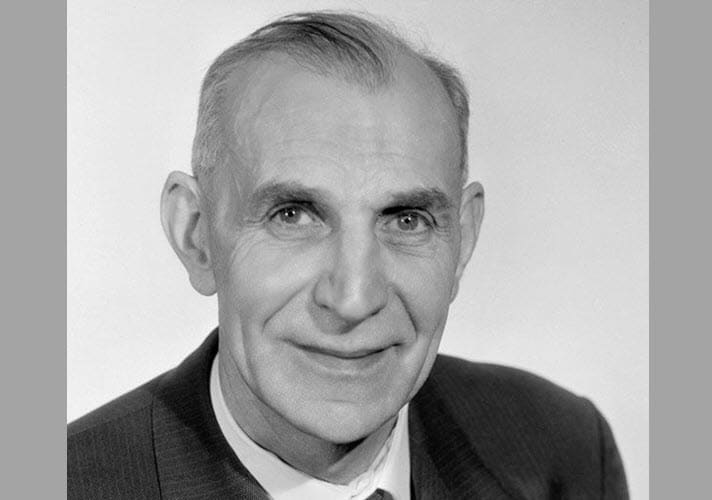Alfred Kastler (3 May 1902 – 7 January 1984) was a French physicist. He was awarded the Nobel Prize in Physics in 1966.
Life and Career
He was born on 3 May 1902, in Guebwiller, France. He received his education at the University of Bordeaux in France, where he earned a doctorate in 1926. After completing his studies, he began teaching at the Ecole Normale Superieure in Paris, where he remained for the rest of his career.
In 1931, he began working on the theory of atomic and molecular spectra, which eventually led to his groundbreaking research in the field of optical pumping.
His most important contribution to science was his discovery of the technique of optical pumping, which is used to study the energy levels of atoms and molecules. Optical pumping involves the use of a strong magnetic field to polarize atoms, which can then be studied using light. His work in this area was crucial to the development of the maser and the laser, which are used in a wide range of scientific and technological applications.
He also made important contributions to the study of atomic and molecular spectra, particularly in the area of hyperfine structure. He developed theoretical models to explain the behavior of atoms and molecules in these spectra, and his work has been widely used in the field.
He died on 7 January 1984, in Bandol, France.
Award and Legacy
He was awarded the Nobel Prize in Physics in 1966 for his work on optical pumping.
In addition to the Nobel Prize, he received many other awards and honors during his lifetime, including the Grand Prix de la Ville de Paris, the Albert A. Michelson Medal, and the Max Planck Medal. He was also a member of several prestigious scientific societies, including the French Academy of Sciences and the Royal Society of London.
His legacy in the field of molecular spectroscopy and his groundbreaking work on optical pumping has had a profound impact on science and technology. His research has led to the development of new tools and technologies that have revolutionized our understanding of the structure and behavior of atoms and molecules. Kastler’s contributions to science continue to inspire new generations of researchers in the field of physics.

